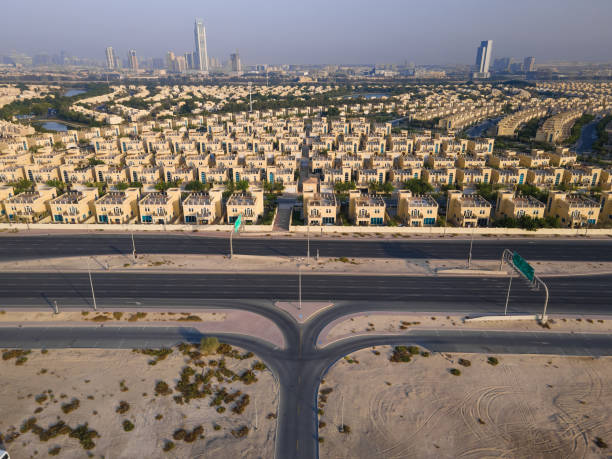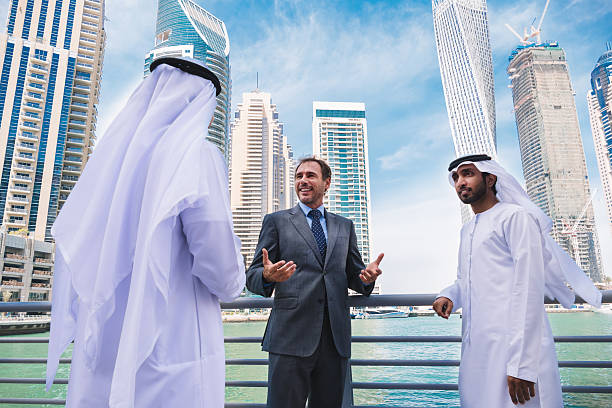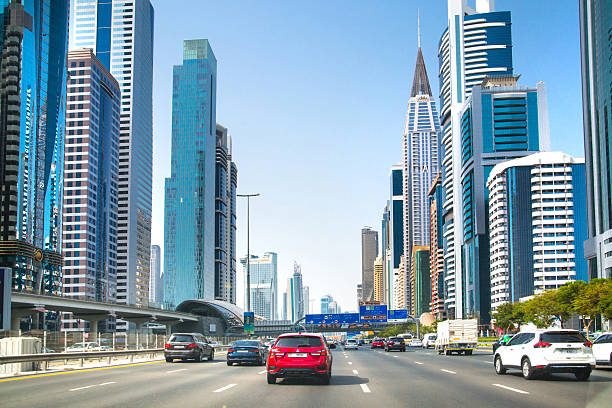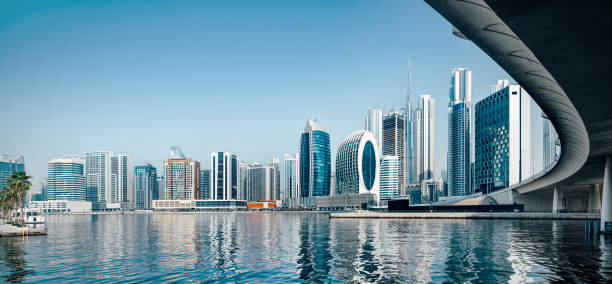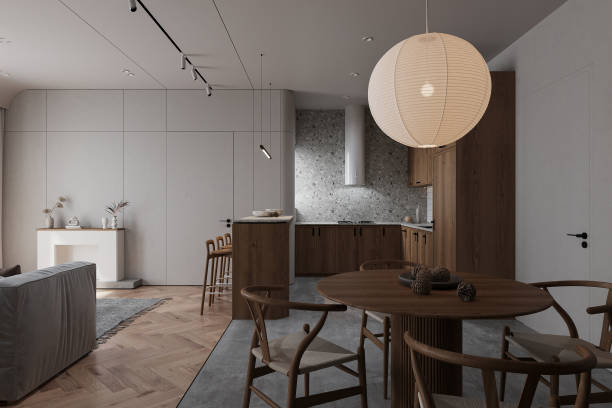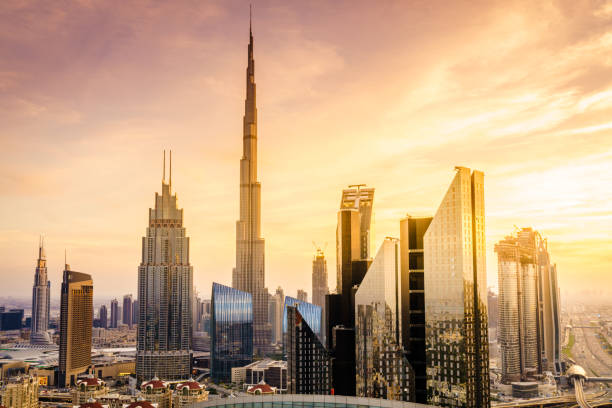
Saving a lot of time to get your loan of home approved in UAE is possible through planning and with organizing the work. Provided with proper strategy, you will be able to make the process faster without any possible unnecessary delays. The following are some of the tips that you could use in order to get your mortgage easily. Learn about Economic Condition You need to review your total financial position before you start applying a home loan. Keep a review of your income, monthly expenditure and any members of debt. When you have a low ratio of debt to income, then you have an improved chance of securing loan approval. Ensure that your revenue is stable and attempt to decrease debts. Your loan providers will look into your financial patterns and provide a good stable financial picture. By preparing your finances in advance, you will know how much money you can borrow and prevent setting back or turn-downs later on, in the application process. Credit Rating should be Good The credit score is instrumental to the rate at which your loan is approved. Good score makes you trustworthy to the banks. Get in touch with your credit report at least once per month Clearing unpaid bills of credit cards Keep away from delayed payments In case you do not have a good credit background, then spend a couple of months and make it good before you apply. Select The Correct Lender Various banks and financial institutions quotations are different in terms and interest rates. Conduct a thorough researches in order to identify a lender that suits you. Compare rates of interest Consider tenure on loans and processing fees Review customer evaluation and ranking of service Choosing an appropriate lender will eliminate the burden of documents and accelerate the procedure. Get Pre-Approval It demonstrates lending institutions have considered your financial characteristic and are ready to provide a specific amount of loan. This does not only save time but also helps you gain credibility with the sellers. Pre-approval will enable you to make a realistic budget and not make unwanted delays. It also makes you confident in negotiating and reduces the time taken to secure the loans in the future. Maintain a Good Work History Providing a buyer has a steady job-history, preferably in the same job, or industry, over a period of two years, lenders will favor them. Stability reveals financial stability and reduces the chances of default. It can give rise to concerns when either you have changed your job very often or have employment gaps. Stable income will give comfort to the lenders that you will be able to fulfil the monthly payments on the mortgage, hence your increased chances of being accepted to take a home loan. The Down Payment Excepted It is important to make sure that one has the substantial down payment in place when seeking a home loan. It exhibits financial conservativeness and diminishes risk to the lender. Larger down payment also has the advantage of reducing your loan-to-value ratio, which will help you to have cheaper interest rates. Have a goal of saving at least a twenty percent of the value of the property so that you can have a good opportunity of getting a loan approved of you without facing any extra costs such as a private mortgage insurance. Order all the necessary documents Loan delays mainly occur due to incomplete paper work. All the documents should be prepared in advance: Copy of passport and visas page Emirates ID Salary certificate or trade license (in case of self-employed) Bank statements (the past 6 months) Down payment evidence Having these documents in place will make the bank handle your loan very quickly. Pay Offstanding Liabilities It is prudent that one clears all repayments of existing debts like credit cards, personal loans or car loans before taking a home loan. Paying off your debts lowers your debt-to-income ratio, which is considered one of the important aspects that lenders consider when they lend money to people. This ratio reflects that your financial health is good and the lower it is the more you will be able to borrow money. This also improves your credit score thus making you a better and more appealing borrower to lenders. Avoid Applying in Different Banks It might appear as a great idea to send many applications to many banks simultaneously, although this can only damage your credit score. Too many loan inquiries in a short time raise red flags Focus on one or two trusted banks Wait for a decision before approaching others Targeted applications increase your chances of quick approval. Consult the Mortgage Consultants In case you do not know how to do it, you may take a mortgage consultant. They can: Assist you to select the best offers of the banks Help to fill out forms and qualification Impose your negotiating on your behalf on the terms They will be of great help in dealing with tricky loan requirements. Become Open and Direct It is necessary to be open and candid in the process of taking home loans. Be honest and truthful in the financial aspect of your application such as income earned, debts owed and employment status. Lenders thoroughly check documents and in case of not meeting documents one can just be rejected. The misrepresentation of information can mar your credibility and cause delay in approval. Being open and trying to build trust with the lender will give you a better advantage of an easy loan process as well as successful mortgage approval. Follow up the Market situation Depending on the state of the economy, the interest rates and the policies that banks apply to lending are quite likely to vary. Keep abreast of the current trends. Use it when the interest rates are low Select the fixed or variable rates depending on the market Appreciate offers or promotions by the bank This will allow

Purchase of an off-plan property, that is an apartment that is still being built can be a profitable investment. The resale value after the completion of the project however is one of the greatest concerns the buyers have. Although off-plan investments have catchy prices and convenient payment terms, it is important to weigh in whether your investment will have decent returns in the future. The following will give you an idea of what to expect in terms of resale should the offense turn out to be an off-plan property. It Is Where Location Counts Most important determinant of future value of property is a property location. A property with ideal location will never lack customers. Any closeness to main roads, business centers, schools, shopping areas etc makes it desirable in resale value. Neighborhoods, which have future infrastructure construction (e.g. metro stations, additional roads), can be expected to show enhancement in value. Count the crime rate, development of the community and general requirement of housing in that site. Hint: capital appreciation tends to be more in the future-oriented developments. Developer Image A track record and credibility of the real estate developer is very crucial in the success and future value of an off-plan property. Check on previous projects: Were they on-time? Evaluate the level of construction, standards of design and the completion level of the project. More buyers tend to be attracted to developers who have a good image when it comes to selling them later. Good-established developers can cause greater sense of reassurance in would-be resalers. Market Trends and Demand It is necessary to realize the trends in the property market in the region. Examine trends in present and future price levels in the community. Good resale value may also be signified by high demand of the rental houses. Keep an eye on the off-plan vs. property readiness pricing on similar localities. Follow the trend of real estate market cycles and choose the period when the growth is expected. Buyer interest and Payment Plans The option of flexible payments helps attract more customers, an aspect that can indirectly increase the resale prospect. The financing mechanisms such as 60/40 or post-handed-over payments schemes build the possibility of accessing the property. Enquire about similar units in the development whether they have already been sold- this will show confidence among buyers. The off-plan project that becomes more attractive to investors should have investor-friendly payment terms in order to create more interest in secondary markets. Amenities and Design Project Contemporary as well as well-planned communities have higher resale value. The consumers are in search of lifestyle rather than a place to live. Gated communities, security, gyms, pools and green areas are very appealing. Value is added through smart home functions, green architecture and green building. Homes that are equipped with superior amenities are in a position to command higher premium resale. Time Schedule and Risk Less time taken with the process of delivery minimizes the uncertainty by the investor and assists in faster resale. Projects that are likely to be delivered in less than 1-2 years are desirable than those with wide delivery horizons. The buyer confidence and resale potential can be reduced as a result of delay in construction. Determine whether or not the developer is famous with timely delivery. Beautiful and consistent construction schedule is another feature that makes the property attractive. The Area Supply There can be excessive supply of properties so as to inhibit the resale value due to excessive competition. Investigate the number of the other units under construction within the same community or region. Find out if there is an influx of properties with a similar type. Even in good locations a drop in resale prices will be possible due to low demand and high supply scenario. Legal and Regulatory Factor Acquisition of registered and approved project assists in lowering legal risks. Make sure that the developer and project are registered in the local property authority. Enquire about disputes or delay in approvals. A well-documented property is also easy to sell again. Investors would also like to purchase legally valid properties to avoid disputes. Expected rental returns Although rental yield is relevant even when you intend to resell your home, the yield affects the degree of desirability of a property. The property is more appealing to investors the higher the rental as a percentage. It can resell the properties with constant getting income at a higher cost. Carry out a comparison of local rent prices on a per-square-foot basis and occupancy rates. Long term resale value is commonly seen to be associated with rental performance. Differentiation and Uniqueness of the project Why should people choose your property among others? This is a significant trigger of the resale. Special architecture, view (e.g. of water-views, skyline), or layout design are a value addition. Final Thoughts Obtaining a resale value is an assessment regarding the future valuation of an off-plan estate, and it will combine studies on the market, and perception of the place, and confidence in the promoter. Although nothing can be done without a risk, paying specific attention to these sets of facts, you can make a wise and profitable decision. All prior to commitments: Make due diligence Compare several projects Consult the experts or consultants in real estate Smartly investing in off-plan property may precondition you with good financial yields-but remember to evaluate it in all perspectives as far as its value is concerned during reselling. Among the mentioned key points, it is also a wise idea to pay attention to the size, as well as the layout of a property. Units that have better arrangement of facilities and storage are more likely to have a larger base of buyers. In addition, look out where potential community amenities like schools, parks, shopping stores and transportation hubs will be built- they have potentials to add a lot of value in the future. Abidance by government rules, taxations, and visa

Dubai remains one of the world’s most dynamic real estate markets. Its technological infrastructure, business-friendly environment, and tax-free benefits attract a broad segment of property buyers. Among choices presented to investors, off-plan Dubai property investments are particularly known to provide long-term returns—mainly in the form of capital growth. As the city itself grows through mega-developments, improved infrastructure, and tourism development, understanding the role of capital growth is crucial when making good investment choices. More about Capital Appreciation Capital appreciation is a rise in the worth of a property over time. While rental yield delivers short-term returns, capital appreciation leads to creation of wealth in the long run. With off-plan properties, appreciation typically takes place from the point of launch until handover, although value tends to appreciate after handover as well. In Dubai, the reasons that lead to capital appreciation are: Market demand and supply conditions Location and supporting infrastructure Developer reputation and quality Economic growth indicators Government reforms and visa incentives This appeal has high potential in off-plan deals because investors buy property for less than market price when developments are still in the early stages. Appeal of Appreciation One of the strongest reasons for investors to pick off-plan developments is the ability to purchase low and sell higher due to forthcoming growth. Developers like selling units at competitive pre-launch prices in order to create early interest. They tend to be lower than completed flats within the same locality or in the same development when complete. The following are the reasons this is appealing to investors: Lower Entry Cost Compared to ready property, off-plan units typically involve less initial capital, through payment by installments over an easy repayment schedule. This reduces the entry barrier and enables the investor to acquire a potentially growing asset for a small upfront outlay. Pre-Handover Price Appreciation Capital appreciation may take place during construction. With development progressing and market conditions stabilizing, the value of the property goes up, enabling early investors to gain even before handover. Post-Handover Value Upsurge After development is complete, and the area is rendered inhabitable with facilities and infrastructure, property value usually sees an upward rise once again. Off-plan developments across most of Dubai Marina, Jumeirah Village Circle (JVC), and Downtown have experienced this trend. Market Trends and Investor Sentiment Dubai realty is defined with cyclical trends of development. Off-plan customers can catch up with the surge of growth when the moment is right for improved yields. Increasing foreign demand and policy reforms, like extended residency for property owners, drive optimism and appreciation in prices. Off-Plan Property and Capital Growth Off-plan developments, by structure and nature, quite naturally provide more appealing opportunities for capital growth. Structures that follow do not. The following are a number of reasons why off-plan property is connected directly to capital growth: Launch Stage Advantage The launch stage of any development will often provide the lowest price band. Developers will pay a premium to advance buyers, so advance buyers are the largest gainers from future appreciation. Location Development Most off-plan projects are released in expansion or growth zones. As the neighborhood public transport, shopping, schools, and hospitals materialize, the land becomes more attractive and drives up real estate prices. Dubai South and MBR City are good examples of this growth-in-progress phenomenon. Developer Credibility and Quality Developers who are known for high-end property with good track record of timely completion and quality will be likely to fetch better prices. Purchasing from a known developer will guarantee that the unit will appreciate or hold value over time on the back of brand equity trust and confidence among buyers. Market Demand At Completion An on-time project launch, with increasing demand in the build-out phase, can create a competitive secondary market. Priced higher if homes are generally selling and the community is receiving attention. This provides existing buyers with a chance to resell at a profit or hold for long-term appreciation. Upgrades and Amenities The pull of high-end amenities, smart technology, and sustainable living has the ability to boost capital appreciation. Developments that provide state-of-the-art features are likely to benefit more in value, particularly when lifestyle and sustainability are drivers of preference for the modern buyer. Strategic Investment Strategies Capital appreciation is a force to be reckoned with, and it needs a strategic approach in order to make the most of it. Some of the strategies employed by investors who have interest in off-plan properties in Dubai are: Select Developments in Emerging Areas Look for regions beyond developed regions. Dubai Creek Harbour, Jumeirah Village Triangle (JVT), and Arjan are a few regions which are under development and expected to appreciate with the further development of infrastructure. Time Your Entry Strategically Invest early in a project, in pre-launch or launch stages, to achieve the best prices. Monitor developers’ announcements and be ready to act quickly to secure the best rates. Review Developer Credentials Always ensure the developer’s history of timely delivery, quality of projects, and after-sales support. This reduces risks and increases prospects for positive capital appreciation. Apply Payment Plans Strategically Dubai’s off-plan market offers various post-handover payment plans. Investors can benefit from capital appreciation during the construction phase while managing finances over time. Choose a plan that aligns with your cash flow and investment goals. Stay Informed with Market Trends Monitor Dubai Land Department (DLD) statistics, property releases, and economic news. Remaining in contact with the latest visa regulations, taxation strategies, and rental market trends enables you to predict future price trends. The Greater Influence on Dubai’s Real Estate Market Capital appreciation in the off-plan segment is not just good for individual buyers but also contributes to broader development within Dubai’s real estate market as a whole. Enhances Investor Confidence: With off-plan properties exhibiting stable appreciation, more and more investors are showing up in the market. Encourages Healthy Growth: Developers are encouraged to create superior-quality, sought-after

The property market in Dubai has seen phenomenal growth in off-plan property investments. World-class infrastructure, government-backed regulations, and payment terms that are convenient to both parties have made off-plan sales a vital segment of the property business. Marketing such projects, however, demands a futuristic solution involving digital technologies, insider knowledge of local conditions, and technical precision. Here are some essential real estate sales tips for Dubai off-plan project brokers—and some technical details as well as practical findings, too. Know the Legal and Technical Infrastructure Real estate agents need to have information regarding the legal and regulatory framework of Dubai off-plan property in depth before selling. Regulatory Authorities and Escrow Laws Dubai Land Department (DLD) and Real Estate Regulatory Authority (RERA) oversee and protect buyers strictly. Under Law No. 8 of 2007, developers are compelled to: Register with RERA. Open an escrow account in a Dubai bank. Place all customer payments into that escrow account. As an agent, emphasize these protection measures to first-time buyers. This makes them more secure and calms their minds about delayed or cancelled developments. Off-Plan Sale Agreement (SPA) The Sale and Purchase Agreement is a contractual agreement that stipulates the terms of the sale. Agents should be familiar with: Provisions for completion date Provisions for penalties in event of delay Payment terms Unit details Having these facts on hand will enable agents to better explain the technicalities to prospective customers and lead them through the transaction confidently. Find and Segment Your Target Audience Off-plan properties are sought after by many types of buyers. To sell successfully, real estate agents need to study different segments: Investors seeking capital appreciation and acceptable rental returns End-users wanting lifestyle amenities and location Overseas investors attracted by low entry prices and long-term visa packages Utilize High-Impact Visual Marketing Tools Off-plan properties are yet to be constructed, thus visual marketing is employed to enable prospects to visualize their future property investment. 3D Renderings and Architectural Walkthroughs Utilize 3D design software such as Autodesk Revit or SketchUp to generate detailed renderings of the apartments. Combine this with photorealistic rendering software such as Lumion or V-Ray to deliver: Floor plans Building facades Amenity areas Such images evoke emotional reactions and increase perceived value. Virtual Reality (VR) and Augmented Reality Incorporate VR headsets into in-site meetings or AR software enabling consumers to tour units from their personal devices. Software like Matterport or Enscape produce engaging tours combining imagination with ownership. Drone Images and Development Site Videos Take images of the development phase and location using drones. The images deliver transparency and depict real project progress, which generates buyer confidence. Apply SEO and Digital Advertising Internet presence is required when promoting off-plan properties in a very competitive market such as Dubai. SEO Use keywords to optimize your content such as: “Off-plan apartments in Dubai 2025” “Investment opportunities in Dubai real estate” “Installment plans for Dubai off-plan villas” Technical SEO features that improve your Google rankings as well include structured data, image alt tags, and mobile optimization. Google Ads and Meta Campaigns Design geo-targeted and remarketing ads. Make use of high-intention keyword PPC campaigns such as: “Buy off-plan Downtown Dubai” “Off-plan villas in Arabian Ranches 3” Use conversion tracking via Google Tag Manager to track form submissions, WhatsApp clicks, or downloading the project brochure. WhatsApp Business API and Chatbots Use WhatsApp for instant messaging and auto-response. Website chatbots can pre-qualify leads by sending queries on location preference, budget, and move-in date. Design Persuasive Landing Page for Every Project Rather than driving leads to a generic website, create a specific landing page for every off-plan project. Technically, this boosts conversions and reduces bounce rates. The key features should be: Project summary with photographs PDF downloadable brochure Payment plan explanation (explained with charts or infographics) Virtual tour link Lead capture form integrated with CRM (such as HubSpot or Zoho) Embedded map of the project location through Google Maps API Make the page AMP-enabled (Accelerated Mobile Pages) so that it loads quickly on mobile devices. Utilize Email Automation and Drip Campaigns Email is still among the best lead-nurturing methods. Segment and Personalize Segment your mailing list by type of lead and stage of buying. Send personalized messages for: New releases Reminders to book Payment plan details Construction milestones Automate Follow-Ups Use software such as Mailchimp, ActiveCampaign, or Salesforce Pardot to carry out drip campaigns. This maintains your nurtured and active leads in the long term. Educate Buyers Through Content Marketing Establish yourself as a thought leader by offering educational content that creates value. Blog Posts and Area Guides Create blog posts such as: Top 5 Off-plan Projects for ROI in 2025 Differences Between Ready and Off-plan Units in Dubai Complete Guide to Buying Off-plan Property in Dubai Optimize blog posts with internal links to project landing pages and external links to government websites such as RERA. Webinars and Virtual Seminars Schedule live sessions by developers or mortgage experts to address buyer questions. Utilize platforms such as Zoom, Microsoft Teams, or GoToWebinar with inbuilt registration forms. Create a Sense of Urgency In order to promote quicker conversions: Highlight time-limited offers or early bird prices. Highlight inventory scarcity, i.e., “Only 3 Units Left in Tower A.” Place countdown timers on offer expiry on landing pages. Highlight Developer Reputation and Successful History Purchasers are likely to trust developers with a proven record of success. Technical Credentials Highlight developer facts such as: Number of successfully delivered projects Square meters of work delivered Number of investors served Average ROI from recent launches Government Approvals Display RERA project registration numbers and DLD approvals. Display DLD QR codes for instant verification wherever feasible. Mortgage Brokers and Legal Advisors Collaboration with specialists provides end-to-end services experience to clients. Pre-qualifying leads and suggestions on financing plans, particularly post-handover

The UAE real estate market is under development and presents a combination of ready and off-plan houses to both domestic and foreign investors. The simplicity in payment, affordability and possible gain are some of the aspects that are making the off-plan investments particularly gaining popularity. Nevertheless, the notions about off-plan purchasing are also numerous but surrounded by numerous myths although people are better informed. To let the investors make informed decisions we will explore and bust the most well known myths about off-plan investments. Off-Plan Properties Are Always Risky The myth that investment in the off-plan is risky per se is one of the most popular. Although no investment can be risk-free, the myth that off-plan purchases cannot be predictable is not true, especially in a well-regulated market like the Dubai one. The Dubai real estate sector is regulated by the Real Estate Regulatory Agency (RERA) and the Dubai Land Department (DLD) which have established effective protective measures. Investors should leave their paid money in the escrow accounts, and the construction is to be watched closely so that there could be no violation. Consequently, buyers are guarded against most of the dangers that have previously been synonymous with off-plan investments. Projects Are Never Delivered on Time Another common myth is that off-plan properties always experience delays and are never delivered on time. Although delays do take place tends to be because of external factors such as supply chain issues or regulatory shifts many developers in Dubai have maintained a sound reputation for timely handovers. The leading builders put a great deal of significance on being credible in the competitive market of real estate. Being completed on time is highly significant to their credibility and future business. Some projects, as a matter of fact, even get completed ahead of time, particularly the ones within master-planned communities with decent infrastructure. Investors are also able to reduce the risk of delay by checking a developer’s track record and speaking to former buyers. Furthermore, building updates are now freely available via regulatory agencies, with investors having more control and transparency than ever. Off-Plan Properties Cost More in the Long Run It is usually inferred that off-plan developments are more expensive when all charges are taken into consideration. This is primarily due to the fact that they are compared to ready developments without including long-term appreciation in value and flexible financing options. Off-plan homes tend to be cheaper than finished buildings when they first go on sale, allowing the customer to purchase a home or property for less than its eventual worth. Developers also offer longer repayment terms, some even years after the property is completed, which can assist in making the price more manageable over time. When you purchase early in a well-placed project, you can enjoy capital appreciation even before unit handover. As time passes, the property increases in value, usually more than initial saving on ready units. In reality, off-plan properties are an affordable choice with decent ROI potential, particularly for long-term investors. Foreign Investors Are Prohibited to Purchase Off-Plan This is a big myth that keeps most overseas buyers away from searching for off-plan deals. This myth contradicts that, i.e., foreign nationals cannot invest in off-plan Dubai property in the freehold areas of Dubai and other emirates. The UAE government has, for its part, made its real estate sector available to foreign investment as a means of bringing in foreign capital. Indeed, developers even sell directly to foreigners, with remote booking services, language-speaking sales staff, and international-standard contracts. You’re Locked Into Your Investment Until Handover Most purchasers believe that when they buy an off-plan building, they have to wait until it is finished before they can sell it. This is a common misunderstanding that discourages some from availing pre-sales. In practice, resale of off-plan property is permitted subject to some conditions. The developers usually insist on payment of some percentage of the worth of the property, usually 30% or more upfront before resale of the unit. This commits the original buyer and keeps the project financially healthy. Once this minimum point is reached, the investors may resale list their units, under developer policies and with an easy approval procedure. This implies that investors enjoy more freedom and a means to reap market appreciation during the construction phase itself. Off-Plan Is Only for High-End Investors Another myth that keeps investors away from joining is the fact that off-plan properties are designed for rich people or those with huge amounts of capital. This is about as close to reality as it gets. Most off-plan properties within the UAE are tailored to suit middle-class customers. Conditions of payment may begin from a minimum of 5% to 10% down payment, with the rest paid out in a few years. This allows it to be far more affordable for first-time homebuyers, young professionals, and families to purchase their initial home. Other than that, off-plan properties are found in a broad array of locations, sizes, and budgets ranging from studios to opulent penthouses. There is something for almost every lifestyle and budget. The Market Is Too Volatile for Off-Plan Investments Certain investors avoid off-plan property because they feel that the UAE real estate market is unstable. While, like any foreign market, UAE property has cycles too, the current market is marked by stability and steady growth. You Don’t Get to See What You’re Buying One of the most prevalent problems is that there is nothing to see physically when purchasing off-plan. Although it is true that the property has yet to develop, the developers offer detailed architectural drawings, high-fidelity photographs, and even usually large-scale model units in sales centers. Virtual tours and visits to similar finished projects in person virtually are also assisting purchasers in visualizing the end product. Final Thoughts The off-plan property investment in the UAE is a breathtaking investment opportunity as it is open

Investing can seem hard. Many people think it’s only for rich experts. But that’s not true. Anyone can invest. You just need to understand some simple ideas. It helps you make money over the years. We will explain how in simple words. What is Investing? What is investing? Investing means putting your money into something. You hope it grows over time.You care for it. Over time, it grows into a big tree.Your money is the seed. The “fruit” is the money you earn later. There are many ways to invest. You can buy parts of a company (stocks). You can lend money to a government (bonds). Or you can buy property. Provenza is about property investment. Why Invest in Property? Property is land or buildings. People often see it as a good investment. Why? It can grow in value: Over time, land and buildings often become more expensive. This is called “appreciation.” You can earn rent: If you own property, you can rent it out. People pay you to live or work there. This is like getting a regular income. It feels solid: Property is something real. You can see it. This makes so many people feel secure. But buying property can be costly. It often needs a lot of money upfront. This is where Provenza’s payment plan comes in. The Challenge of Big Payments Most people don’t have all that money saved up. They need a way to pay for it over time. This is a common problem. It stops many people from investing in property. Traditional ways often ask for a huge down payment. Then, the rest is due quickly.It can put a pressure on your finances. This is especially true in fast growing markets where property prices are continuously climbing. It bridges the gap between aspiring investors and valuable assets. Provenza’s Solution: A Smart Payment Plan Provenza understands this problem. They created a special payment plan. It spreads out the payments. This takes away a lot of financial pressure. Let’s look at how their payment plan works. It usually has two main parts: Payments during construction: You pay a part of the money while the building is being built. Payments after handover: You pay the rest of the money after you get the keys to your property. This is different from paying everything upfront. It breaks down a big cost into smaller, easier pieces. Breaking Down Provenza’s Payment Plan (Examples) Provenza often offers different options. These options are designed for different people. Here are a few common types: The “60/40” Plan: You pay 20% when you book the property. This is your initial commitment. Then, you pay 40% more during the time the building is under construction. For example, you pay a bit when the foundation is done. You pay more when the walls go up. Finally, you pay the last 40% when the property is ready and given to you (handover). The “Post-Handover” Plan (like 70/30): You pay 20% at booking. You pay 40% during construction. You pay 10% when you get the property. The remaining 30% is paid after you get the property. This is a very important part. How the Payment Plan Helps Long-Term Gains Provenza’s payment plan is not just about making payments easy. It actually helps you make more money in the long run. Here’s how: Reduced Upfront Financial Pressure: You don’t need all the money at once. This means you can invest even if you don’t have huge savings ready. It frees up your other money. You can use your savings for other things. This makes property investment open to more people. Leverage and Capital Appreciation: When you buy property this way, you are using “leverage.” You are controlling a large asset (the property). As the building is constructed, its value might go up. This is called “capital appreciation”. When you finally take full ownership, you might have already gained value. Potential for Rental Income (Especially with Post-Handover): This is a HUGE benefit of the post-handover plan. you can rent it out. The rent you get can help you pay the remaining monthly installments. Think about it: Your tenant is helping you pay for your investment! This means your own cash outflow is very low. This turns your investment into a self-paying asset. This is a dream for many investors. Flexibility and Better Cash Flow Management: The spread-out payments allow you to manage your money better. You can plan your budget. You can save money for those payments. This avoids sudden financial shocks. Risk Mitigation during Construction: With construction-linked payments. You have more control. It reduces the risk of the developer not finishing the project. Early Entry into a Growing Market: Provenza often builds in areas that are growing fast. These are places where property values are likely to increase. By buying “off-plan” (before it’s fully built), you get in early. You buy at today’s price. By the time the property is ready. This can push up your property of value even more. Who Benefits Most from Provenza’s Plan? Provenza’s payment plan is great for: First-time investors: It lowers the barrier. It makes property investment less scary. Salaried individuals: People with a stable monthly income can manage the installment payments. Investors seeking passive income: The post handover plan for those who want to earn rent without a big initial financial strain. Important Things to Remember While Provenza’s plan is good always remember to: Do your research: Determine the property. Determine the area. Appreciate the developer’s history. Read the contract carefully: Appreciate all the terms and conditions. Know about your payment schedule. Understand the market: Property values go up and down. Investing is a long term game. And be a patient. Conclusion Provenza’s payment plan makes this journey much simpler. It reduces big upfront costs. It spreads out payments. You can use potential rental income to pay off your investment. This thinking approach supports long term gains.

Dubai is a memorable city. Many people want to own a home here. But, buying a property can be expensive. It often needs a big down payment. This can be a challenge for many, especially expats. This is where rent to own models come in. They provide a smart way to get on the property ladder. What is Rent-to-Own? Rent to own is an easy idea. It is like renting a home with a special. This option lets you buy the home later. You act as a tenant first. You pay monthly rent. A part of this rent goes towards your future down payment. This makes it easier to save up. Think of it as a mix of renting and buying. You get to live in the home. You can see if you like the area and the property. At the same time, you are building equity. This is a big advantage. How Does it Work in Dubai? The rent-to-own process in Dubai is peacefully structured. Here is this a general idea of how it works: Agreement:This contract sets out the terms. It includes the rental period. It also states the future purchase price. Initial Deposit: You usually pay a small initial deposit. This is much lower than a traditional down payment. It can be around 5% to 10% of the property’s value. Sometimes, there are even options with no down payment. Monthly Payments: You pay monthly rent. A portion of this rent is saved. This saved amount goes towards your down payment. This means your rent is working for you. It’s helping you buy the home. Rental Period: The rental period can vary. It’s usually from 1 to 5 years. During this time, you live in the property. You get to experience living there. Purchase Option: At the end of the rental period, you have a choice. You can decide to buy the property. The price is usually fixed at the start. This protects you from price increases. If you decide not to buy, you can usually walk away. However, you might lose the portion of rent that was set aside for the down payment. It’s important to check your contract for this. Why is Rent-to-Own Smart in Dubai? There are many reasons why rent-to-own is a good choice in Dubai: Lower Upfront Costs: This is a major benefit. Traditional mortgages need a large down payment. This can be 20% or even 25%. Rent-to-own needs a much smaller initial payment. This makes homeownership more reachable. Build Equity While Renting: You are not just paying rent. A part of your payment is building equity. This means you are slowly buying a part of the home. This is much better than just paying rent with no return. Price Lock: The purchase price is usually agreed upon early on. This is a big plus in a market like Dubai. Property prices can go up. With a rent-to-own agreement, you lock in the price. This means you won’t pay more even if the market goes up. Time to Improve Finances: Rent-to-own gives you time. You can use this time to improve your credit score. You can also save more money. This helps you get a better mortgage later. “Try Before You Buy”: You get to occupy the property. You can see if it is the right fit for you. This helps you make an illiterate decision. You would not be stuck with a property you do not like. Flexibility for Expats: Many expats find it hard to get a large loan. Renting to own provides an easier path. It helps them transition from least to owning in Dubai. It needs less strict requirements than a full mortgage. Things to Consider While rent-to-own is great, it’s good to know all sides: Higher Rent: You might pay a bit more in rent. This is because a portion of it goes towards your future down payment. But this extra cost is an investment in your future house. Commitment: Rent to own is a long term plan. It usually lasts a few years. You need to be sure about your plans. Breaking the agreement early can mean penalties. Non-Refundable Payments: If you had to decide not to buy you might lose the money paid towards the down payment. Property Options:This might limit your choices. But, more developers are offering these schemes now. Legal Aspects and Registration In Dubai, rent-to-own contracts are legal. They are recognized by the Dubai Land Department (DLD). This gives security to both parties. The contract will clearly state everyone’s rights and duties. It’s vital to get all the details in writing. Also, ensure the agreement is registered with the DLD. This makes it official and protects your interests. Finding Rent-to-Own Properties in Dubai Many big developers in Dubai offer rent-to-own options. You can find properties in popular areas like: Jumeirah Village Circle JVC Business Bay Al Furjan Dubai South Marsa dubai Umm al tarif It is a good idea to work with real agents. Look for agents who know the rent to own the market well. Can also guide you through the process. Ask them important questions. What is the exact purchase price? Can it be changed later? How much of my rent goes to the purchase? The Future of Homeownership in Dubai The real market in Dubai is always changing. Renting to own models is becoming more popular. They provide a great solution for those who want to own a home.This makes property ownership more accessible. It is a sign of an evolving market. Conclusion If you have a dream of owning a home in Dubai, don’t give up. Visit rent to own options. They must be your perfect path to becoming a proud homeowner in this stunning city. It is a smart financial decision.Everytime do your homework. Read all documents peacefully. Get executive advice if needed. This will ensure a smooth tour to your new home.

The real property market is always changing. Buyers see more than just four walls and a roof. They desire a lifestyle. They want convenience. This is where value added amenities come in. For off plan properties these amenities are crucial. Let’s visit how these features boost appeal. What are Off-Plan Properties? First, let’s define off-plan. Off-plan properties are homes bought before they are built. You buy based on plans and renderings. This means you don’t see the finished product. This can be risky for some buyers. So, developers need to offer something extra. They need to create a vision. Amenities help paint this picture. The Power of Vision You wanted to know its features. You’d want a detailed brochure. Off-plan properties are similar. Buyers need to envision their future. High-quality amenities help them do this. A swimming pool is not just a pool. It is a place for relaxation. A gym is not just equipment. It is a healthy lifestyle. These visions are powerful selling tools. Why Amenities Matter for Off-Plan For completed properties, you can see and touch everything. For off-plan, you rely on trust. You rely on the developer’s promise. Amenities build this trust. They show commitment to quality. They show foresight. They suggest a premium living experience. This is especially important in competitive markets. Types of Value-Added Amenities Amenities are diverse. They cater to different needs. Here are some unique categories: Lifestyle Amenities: They should focus on well being and leisure. Think about spas and yoga studios. These promote an active life. Convenience Amenities: These make life very easy. Concierge services technology and package lockers fall into this group. They save time. Social Amenities: Rooftop lounges and communal gardens or BBQ place and co-working spaces foster interaction. Family-Friendly Amenities: Families with kids can use these. Playgrounds or the kids clubs and dedicated playrooms and family friendly pools are examples. They provide peace of mind for parents. Pet-Friendly Amenities: With more pet owners these are attaining popularity. Pet washing stations or designated pet relief areas and even pet daycare can be big draws. Sustainability Amenities: Eco conscious buyers value these. Solar panels and EV charging stations or green spaces and rainwater harvesting systems show a commitment to the environment. Technological Amenities: Integrated smart home systems and high speed internet and keyless entry are looked for. Boosting Investment Potential Amenities aren’t just about lifestyle. They also boost investment potential. A property with excellent amenities can command higher rental yields. It can also appreciate faster. Buyers see the long-term value. They understand the appeal to future tenants or buyers. This makes the off-plan purchase more attractive. It de-risks the investment somewhat. For off plan buy where the property is bought before completion. The promise of high amenities helps to de-risk the investment. It offers a tangible value proposition that reassures purchase about the property’s future marketability and desirability even before it is built. In essence, amenities transform a property from an easy living space into a more robust and appealing investment that provides both immediate rental advantages and long term big growth potential.their impact extends far beyond. Catering to Specific Demographics Developers need to know their target market. Are they young professionals? Families? Retirees? The amenities provided should align with their needs. For new professionals or co-working spaces and high speed internet are key. For families we have playgrounds and secure environments are vital. Retirees must prefer quiet lounges and easy medical facilities. Tailoring amenities is critical for success. A one size fits all approach rarely works. The Role of Design and Quality It’s not just about what amenities are offered. It’s also about how they are designed. High-quality materials are important. Expert craftsmanship is expected. An aesthetically pleasing design adds to the appeal. A poorly maintained amenity can actually deter buyers. So, developers must ensure long-term quality. They must show a commitment to ongoing maintenance. This builds trust in the overall project. Creating a Unique Selling Proposition (USP) Amenities can provide this. Imagine a development with a unique sky bridge. Or a property with a private art gallery. These distinctive features stand out. They make the property memorable. They give buyers a reason to choose one over another. This is especially true for off-plan. When everything else is just plans, a unique amenity can be the tie-breaker. Addressing Buyer Concerns Buying off-plan can be daunting. Buyers worry about delays. They worry about the finished quality. Visible, well-planned amenities can ease these fears. They show tangible value. They demonstrate the developer’s vision. They offer a concrete promise of future lifestyle. This transparency is vital. It builds confidence in the project. The Financial Aspect Of course, amenities come at a cost. Developers must balance this. The cost of amenities is factored into the property price. Buyers are generally willing to pay more for added value. But there’s a limit. Creators need to be strategic. They could select amenities that provide the best return on investment. They should prioritize features that repeat most with their target buyers. Marketing and Visualisation Successful marketing is key. creators use sophisticated tools. 3D renderings or virtual tours and augmented reality are common. These tools bring the amenities to life. They allow buyers to “experience” the facilities before they exist. High-quality visuals are essential. They help buyers truly envision their future home. They make the off-plan purchase feel more real. Conclusion Value-added amenities are no longer optional. They are a core component of off-plan property appeal. They can change a blueprint into a dream home. They provide lifestyle or convenience and community. For creators they are powerful marketing tools. For purchase they represent living and investment potential. By appreciating and strategically implementing these amenities or developers can significantly boost the appeal of their off plan factor. This leads to faster sales and happier customers. The future of real estate is about selling a complete experience, not just a property. And amenities are at the heart of that experience.

Dubai is a city of fantasy. It provides a life of luxury and convenience. Many people choose to live here. They want a great lifestyle. Living in Dubai can be expensive. But there are smart ways to live well. One of the best ways is to rent or buy an apartment. Especially if it’s near a Metro station. This choice brings many benefits. It makes daily life much easier. It also saves you money and time. Let’s explore why living near a Dubai Metro station is truly incredible. Unmatched Convenience and Connectivity Imagine getting around Dubai with ease. No more traffic jams. No more expensive taxis every day. This is the reality when you live near a Metro station. Dubai’s Metro system is world-class. It’s clean, efficient, and very well-connected. It covers most major areas of the city. You can reach business hubs quickly. Popular shopping malls are just a ride away. Tourist attractions are also easily accessible. The Metro links places like Downtown Dubai. It connects to Dubai Marina. Business Bay is also on the network. Jumeirah Lakes Towers too. This means your commute to work is simple. Your trips for leisure are stress-free. You just hop on the train. You arrive at your destination refreshed. This convenience is a huge advantage. It truly transforms your daily routine. Save Time, Save Money Time is valuable. In a busy city like Dubai every minute counts. Traffic can be a major issue. Long commutes eat up your day. Living near the Metro cuts down travel time significantly. You can spend more time doing what you love. Maybe it’s with my family. Or pursuing hobbies. Less time stuck in traffic. More time for life. And let’s talk about money. Owning a car in Dubai can be costly. There’s fuel. There are parking fees. Maintenance adds up. By relying on the Metro, you save a lot. Fares are affordable. A Nol card makes it even cheaper. This public convey system is much more budget friendly. These recoveries can add up over a year. You can use that money for things. For example, exploring Dubai’s amazing restaurants. Or enjoying its many entertainment options. Access to Amenities and a Vibrant Lifestyle Metro stations are often central points. They are surrounded by amenities. This is true for Dubai Metro stations. You will find shops nearby. There are restaurants. Supermarkets are easily accessible. Clinics and hospitals are often close by. Schools are also within reach. This means every single thing you need just a short walk or a quick Metro ride away. This proximity made a vibrant lifestyle. You are part of a busy community. You can easily meet friends. You can explore new places. The areas around Metro stations are lively. There’s always something happening. You get to hapening the true pulse of Dubai. It is a dynamic environment. It offers endless chances for fun and convenience. Higher Property Value and Rental Potential For investors, apartments near Metro stations are gold. They have higher property values. They also have excellent rental potential. Many people want to rent in these areas. They value easy transport. This constant demand means good rental yields. Property prices near Metro stations tend to appreciate faster. This is a smart investment. It offers both convenience for residents and good returns for owners. The Dubai government is always improving the Metro network. New lines are being planned. This means even more connectivity in the future. This ongoing development adds to the investment appeal. Buying property near a Metro station is a long-term benefit. It is a secure choice. It provides food to the city’s growth. A Greener, Safer Choice Choosing the Metro is also a great environment. It decreases your carbon footprint. Fewer cars on the road mean smaller pollution. Dubai is committed to being capable of being sustainable. Using public transport helps this goal.The Metro system is very safe. There are security personnel. Observation cameras are everywhere. Stations are well lit and clean. You can feel safe while traveling. This peace of mind is critical. Especially for families. The Metro system is described as “very safe” due to the presence of security personnel and ubiquitous observation cameras.Stations are highlighted as being well lit and clean further contributing to a sense of security.The overall safety measures provide travelers especially families with peace of mind which is deemed critical. Diverse Options to Suit Every Need Dubai offers a wide range of apartments. You can find luxury options. There are also more affordable choices. Whatever your budget, you can find something suitable. Many communities are located along the Metro lines. Areas like Dubai Marina are popular. Downtown Dubai offers premium living. Business Bay is great for professionals. Discovery Gardens offers budget-friendly apartments. Al Nahda is another good option for affordability. You can find studios. One-bedroom, two-bedroom, and larger apartments are available too. There’s a perfect home for everyone. All within easy reach of a Metro station.A sought-after affordable neighborhood, Al Nahda offers a variety of apartment sizes and is well served by the Green Line of the Dubai Metro, making it a convenient option for those looking for more economical living. Another eco-friendly community, DIP offers properties to suit various budgets and is connected to the Metro network. Conclusion: Live the Incredible Dubai Life Living in a Dubai apartment near a Metro station is a smart option. It provides singular convenience. It can just save your time and money. It gives you access to a lively style. It is a shared sound. And it is a greener or safer way to live. This mixture of benefits makes it truly incredible. If you are planning to move away from Dubai and consider this option. Visit the apartments near Metro stations. You will discover a world of ease and opportunity. Embrace the incredible life that Dubai offers. Start living smart. Start living connected. Choose an apartment near a Metro station. You will not regret it.

Dubai’s property market is booming. Managing properties there can be complex. You need to handle many things. This includes tenants, leases, and maintenance. Property management software can make this easy. Why Use Property Management Software in Dubai? Software helps you stay organized. It automates daily tasks. It reduces errors. It also ensures compliance with local laws. This includes Ejari registration. Without it, you might face problems. Key Features to Look For When choosing software consider these features: Tenant and Lease Management: This helps track tenant details. It includes their contact information. It manages lease agreements. You can store all documents securely. Automated Rent Collection: Online payments are essential. The software should allow secure online rent collection. It should also send reminders. They can also be for overdue rent Maintenance Management: Tenants can easily ask for repairs. They can submit requests online. You can track fixes. It keeps tenants happy. It also keeps your properties in good condition Financial Reporting and Accounting: This tracks all income. It tracks all expenses. It helps with invoicing. It creates invoices for rent and other charges. It also generates financial reports. These reports show your profits. They show your losses. You can identify areas for saving. CRM (Customer Relationship Management): This helps manage client questions. It tracks new leads. It improves talking with tenants and owners. You can keep a history of all communications. Cloud-Based Access: You can get your data from anywhere. This is very handy. You can use it from your office. You can use it from home.This means less worry about data loss. Integration: It should work well with other tools. This includes accounting software like QuickBooks.This makes your workflow smooth. Localized Features: For Dubai, Ejari integration is key. It ensures you follow the law. Some software offers direct integration. It ensures your leases are legally valid. Now, let’s look at some top options. Top Property Management Software in Dubai PropSpace PropSpace is well-known in the UAE. It offers full solutions.New users can learn it fast. It covers everything from listing properties to managing finances. It is designed for the local market. This makes it very useful for properties in Dubai. MASPRO by Al Mas IT Solutions MASPRO is a top solution. Many people trust it. This includes landlords and real estate agents. It offers lease management. You can customize it to your specific workflows.This is a big plus for users in Dubai. They help with setup and any issues. DoFort Property Management Software DoFort is a flexible system. You can use it in your office or online. It helps manage real estate assets easily. It tracks vacancies and rent. It has a mobile app for tenants. This includes HR, payroll, and CRM. It also has budget tools. Yardi Breeze Yardi is a global leader. Yardi Breeze is their online solution. It’s popular in Dubai. It is known for its simplicity. It helps manage homes, tenants, and finances These images can be added to maintenance requests. This speeds up the repair process. It’s good because Yardi is a trusted name. Keyper Keyper is made just for Dubai landlords.It helps manage tenant data and lease papers. It also makes sure you follow the law. It has Ejari tracking. It sends legal reminders. It integrates with DLD data sources It’s good because it’s very specific to Dubai’s laws. Axolon Property Management Software Axolon is designed for the UAE market. It empowers property managers and landlords. It helps achieve excellent operations. It offers strong tools for multiple properties.This means you can access it from anywhere. It’s good because it focuses on local compliance. Elate Property Management Software Elate is another strong contender. It is cloud-based. It offers a range of features for real estate businesses. It helps track expiring contracts. It provides detailed payment overviews. It shows occupancy rates It’s good because it focuses on efficiency and profitability. BlueSky Real Estate Software BlueSky is a cloud-based solution. It is designed to meet all requirements of a property management company. It includes modules for tenants, contacts, and leasing. It also covers accounting and financial reporting DoorLoop DoorLoop is an all-in-one software. It helps property managers and owners. It aims to help them make more money and grow. It allows online rent collection. It offers a clean design. It is easy to navigate. It is designed to simplify property management for everyone. TenantCloud TenantCloud offers an end-to-end solution. It has a free basic plan. It allows sending and receiving rent payments. It also manages maintenance. Factors to Consider When Choosing Your Property Count: Small landlords might like simpler tools. They might only have a few properties. Larger companies need more features. Budget: Prices are very different. Some have free basic plans. Others have monthly fees. These fees can vary a lot. Set a budget before you start looking Specific Needs:Maybe advanced tenant checks? Some software specializes in certain areas. Think about your most important needs. Make a list of your must-have features. Ease of Use: A system that is easy to use is very important. You and your team will use it every day Customer Support: Good help can save you problems. You might face technical issues. You might have questions about features. Strong customer support is vital. Scalability: Pick software that can grow with your business. You might start with a few properties. But your portfolio might expand. It should also handle more users. This avoids switching software later. Security: Keeping your data safe is most important. Property management involves sensitive data. This includes tenant details and financial information Conclusion Dubai’s property market has great chances. But it also has management problems. Property management software is a smart choice. It makes tasks easier. The best software for you depends on what you require. Look at PropSpace, MASPRO, DoFort, Yardi Breeze, and Keyper. These are some of the best choices. Each has its strengths. They


